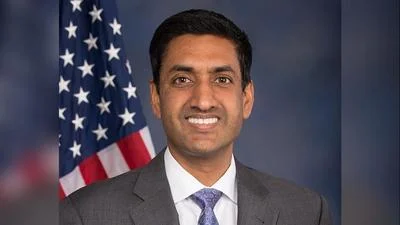John Taylor, Professor of Economics at Stanford University and developer of the "Taylor Rule" for setting interest rates | Stanford University
John Taylor, Professor of Economics at Stanford University and developer of the "Taylor Rule" for setting interest rates | Stanford University
Researchers have concluded that the goal of limiting global warming to 1.5 degrees Celsius above pre-industrial levels is now almost certainly unattainable. This finding was published on December 10 in Geophysical Research Letters. The study suggests that future years are likely to surpass existing heat records, with a 50% chance of global warming exceeding 2 degrees Celsius even if current targets for reducing greenhouse gas emissions are met by the 2050s.
Previous studies, including those by the Intergovernmental Panel on Climate Change, indicated that decarbonization could maintain warming below 2 degrees. However, "We’ve been seeing accelerating impacts around the world in recent years," said Noah Diffenbaugh, a climate scientist at Stanford Doerr School of Sustainability and co-author of the study with Elizabeth Barnes from Colorado State University.
The study anticipates that this year will be Earth's hottest on record, with temperatures expected to exceed 1.5 degrees Celsius above pre-industrial levels. There is a nine-in-ten chance that the century's hottest year will be at least half a degree hotter than previous records under rapid decarbonization.
Diffenbaugh and Barnes used AI to predict potential temperature increases based on various decarbonization scenarios. "AI is emerging as an incredibly powerful tool for reducing uncertainty in future projections," said Barnes.
The findings suggest the world has missed its opportunity to meet the Paris Climate Agreement's more ambitious goals of keeping long-term warming well below 2 degrees while trying to avoid reaching 1.5 degrees.
A second paper by Barnes and Diffenbaugh predicts regions like South Asia and Central Europe could see over 3 degrees Celsius of warming by 2060 if emissions continue increasing. Both studies build upon previous research predicting when the critical temperature thresholds would be breached.
"As we watched these severe impacts year after year," Diffenbaugh stated, they focused on how extreme conditions might become despite emission reduction efforts.
In an optimistic scenario where emissions reach net zero by the 2050s, there remains a significant chance for substantial temperature increases globally compared to pre-industrial levels. If emissions decline too slowly to reach net zero by 2100, many regions may experience anomalies triple those seen in recent years.
These predictions emphasize not only investing in decarbonization but also enhancing resilience against severe weather conditions due to continued warming. Historically, adaptation efforts have lagged behind carbon reduction investments such as those from policies like the Inflation Reduction Act of 2022.
"Our results suggest that even if all effort and investment in decarbonization is as successful as possible," Diffenbaugh warned, without equivalent investments in adaptation measures people and ecosystems face exposure to extreme climate conditions beyond current preparedness levels.
Diffenbaugh holds positions as professor at Stanford Doerr School of Sustainability and senior fellow at Stanford Woods Institute for Environment.
Support for their Geophysical Research Letters study came from Stanford University along with U.S. DOE Office’s Program for Model Diagnosis & Intercomparison; Environmental Research Letters received backing from European Union’s Horizon programs among others mentioned institutions including Swiss SERI plus Stanford Woods Institute itself.




 Alerts Sign-up
Alerts Sign-up